The aftermath of the 2017 drought had devastating effects, leaving half of Somalia’s population with food and water shortages. Portable water became scarce and existing water supplies became unfit for consumption, accelerating water borne diseases. One year after the drought, vulnerable communities still felt the pangs of famine. There was slow recovery from the aftershocks of drought for most rural communities as food and water shortages were still existing. To address this, Nomadic Assistance for Peace and Development (NAPAD) in partnership with the Norwegian Church Aid (NCA) implemented a WASH intervention in Somalia’s Gedo region helping vulnerable communities regain their balance post-drought period.
The NCA Drought Response and Recovery Program, implemented two years ago enabled drought stricken communities in Qurdubey and Busle village, Dolow District to access safe, equitable and sustainable access to water. The project consisted rehabilitation of a shallow well, installation of a solar pumping system, construction of a 20,000 elevated water tank and a water kiosk in each of the village. The water project is also extended to important institutions in the village such as hospitals and schools, providing clean water to Qurdubey and Busle Primary schools and health centres.
Besides helping the communities quench their thirst, the project put in place sustainable measures to uplift the communities. Water kiosks were fitted with charging ports as a means of generating income and fencing of the kiosks to ensure safety for the communities as they access water.
Qurdubey- ‘My queens no longer worry about water’
Kusoow Ibrahim accompanies his two sons and two daughters to Qurdubey Village water kiosk as they fetch water for their family. Two years ago, his wife and daughters, in the company of other women would trek a total of 6KM to and fro River Ganane every morning and evening to fetch water. His wife and children had to perform this treacherous task religiously to quench their thirst.
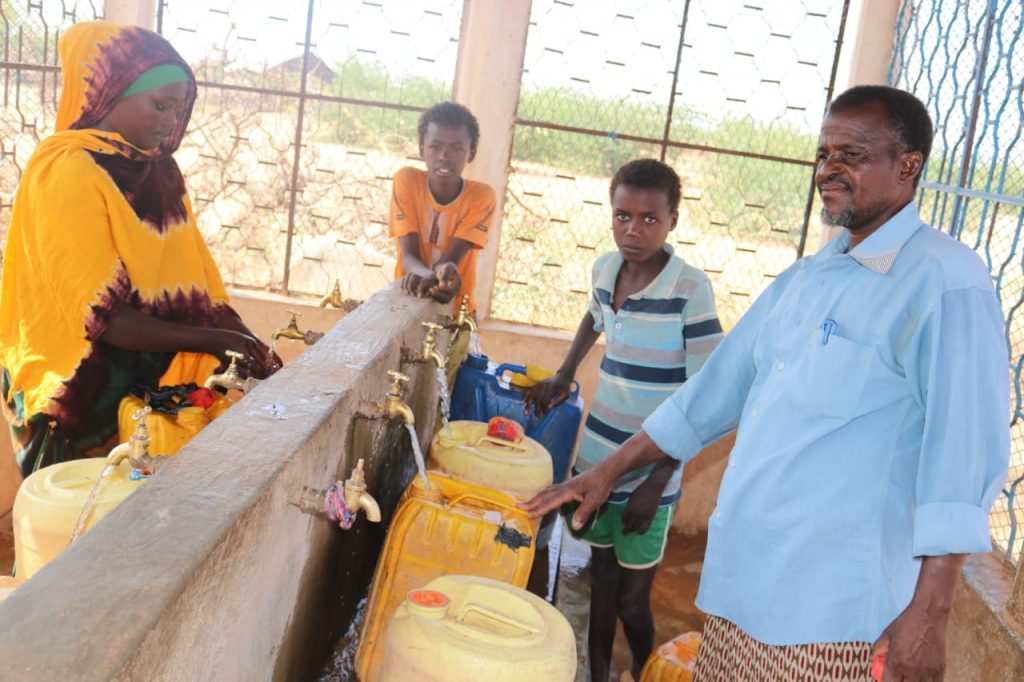
Like in most rural villages of Somalia, water fetching is a task mostly reserved for women. The long and tiresome journeys in search of water are usually coupled with insecurity. Wild animals such as crocodiles are imminent threats when fetching water along the river banks.
“I knew what it meant for us, especially for my family. Ever since this project was implemented, my queens no longer worry about water or travel for hours to the River as the water kiosk is a stone throw away…”
kUSOOW IBRAHIM
”I was the happiest man on earth when this project became a reality. I knew what it meant for us, especially for my family. Ever since this project was implemented, my queens no longer worry about water or travel for hours to the River as the water kiosk is a stone throw away,” says the father of 12.
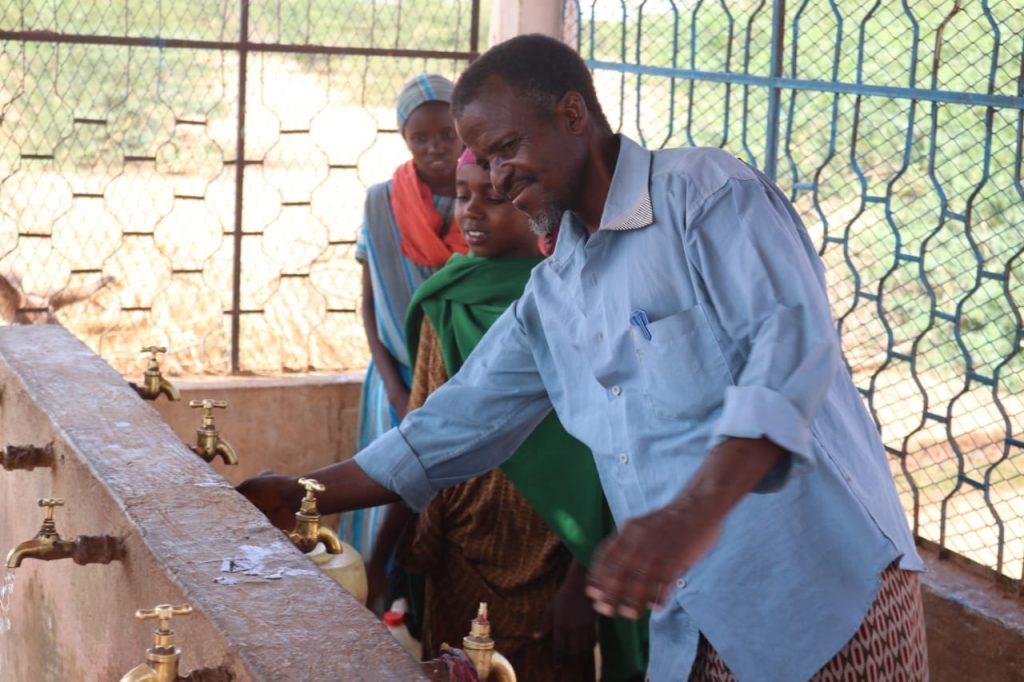
The water kiosk fitted with 8 taps serves eight people at ago, and provides clean treated water to more 1,800 people. The charging ports in the water kiosk ran by the water management committee help generate income and act as subsidies for the residents in return.
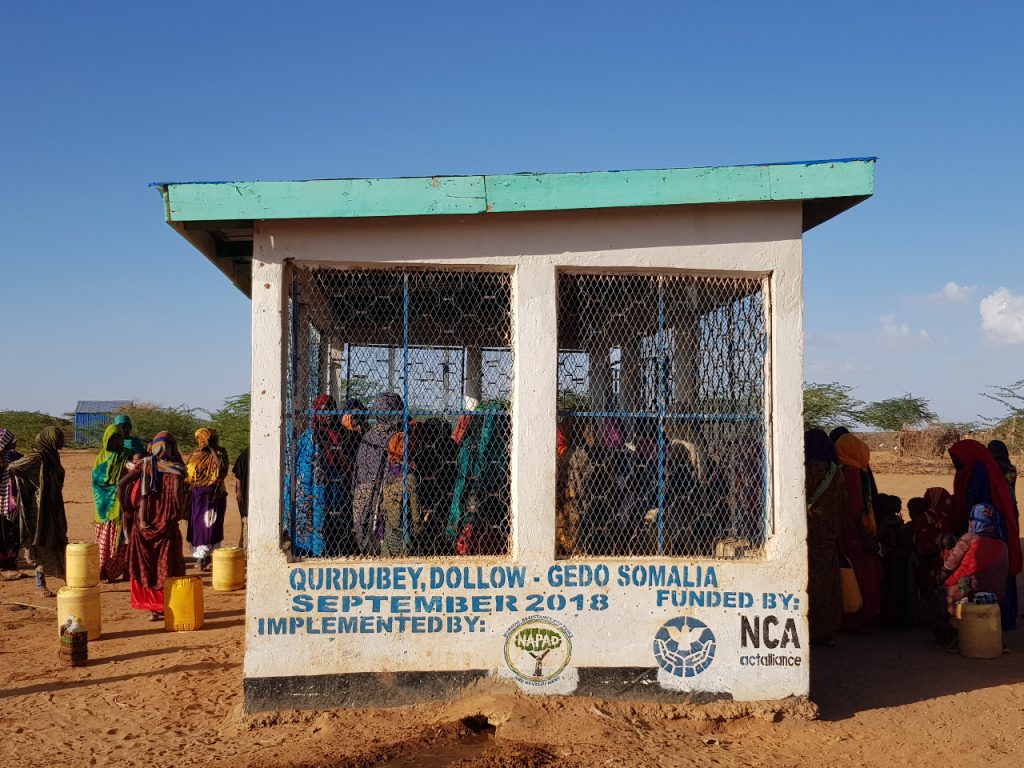
”Every family pays 35 Bir (1.50 Dollars) as fee for every month. The destitute and those with special needs are not charged,” Kussow explains.
Since 2018, water problems in Qurdubey village and its environs is a thing of the past and many families have now shifted their minds on other activates such farming.
Busle- ‘Alhamdulillah! we are less than five minutes away from the water point’
A few kilometres from Qurdubey Village is Busle Village where Mama Ebla fetches water for her family at the Busle water kiosk. This is a chore she has observed diligently since her teenage years, only that now the water has been brought closer to her. It’s almost two years since Mama Ebla and other Busle Village residents have been accessing water without a hitch. The mother of five recalls how in the past she would trek 8KM to and fro River Ganane twice on daily basis to fetch water for her family.
“We would travel two and half hours to and from the river every time I fetch water…”
Mama eBLA
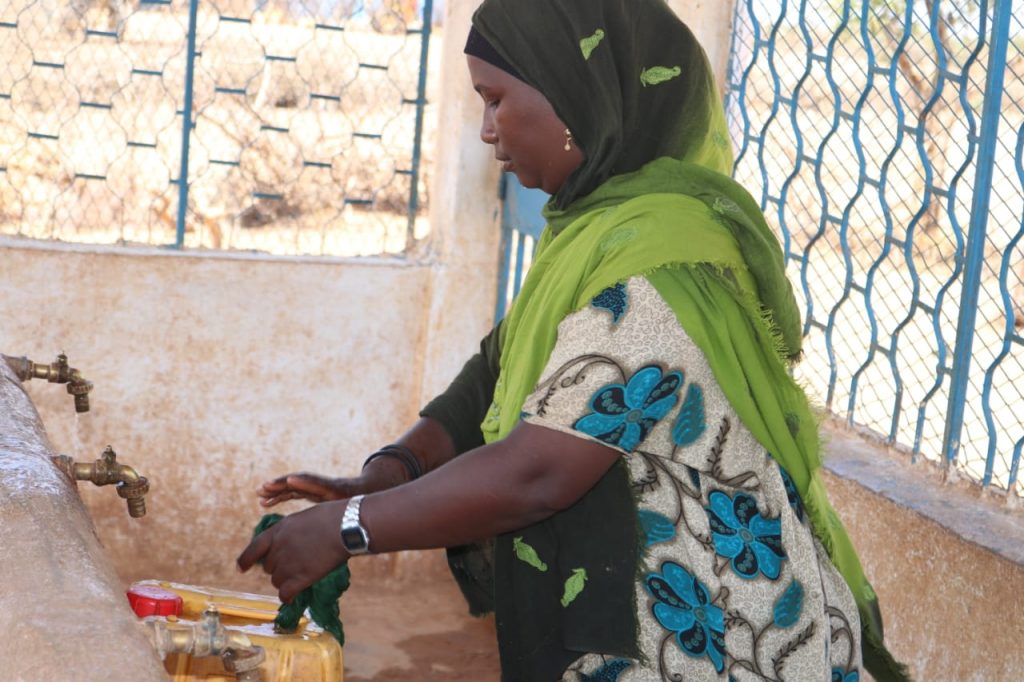
”Early in the morning I would go to the river in the company of other women, equipped with my jerricans to fetch water for my family and on my way back again I would collect firewood along the way and put it on my back. We would travel two and half hours to and from the river every time I fetch water, ” Mama Ebla narrates.
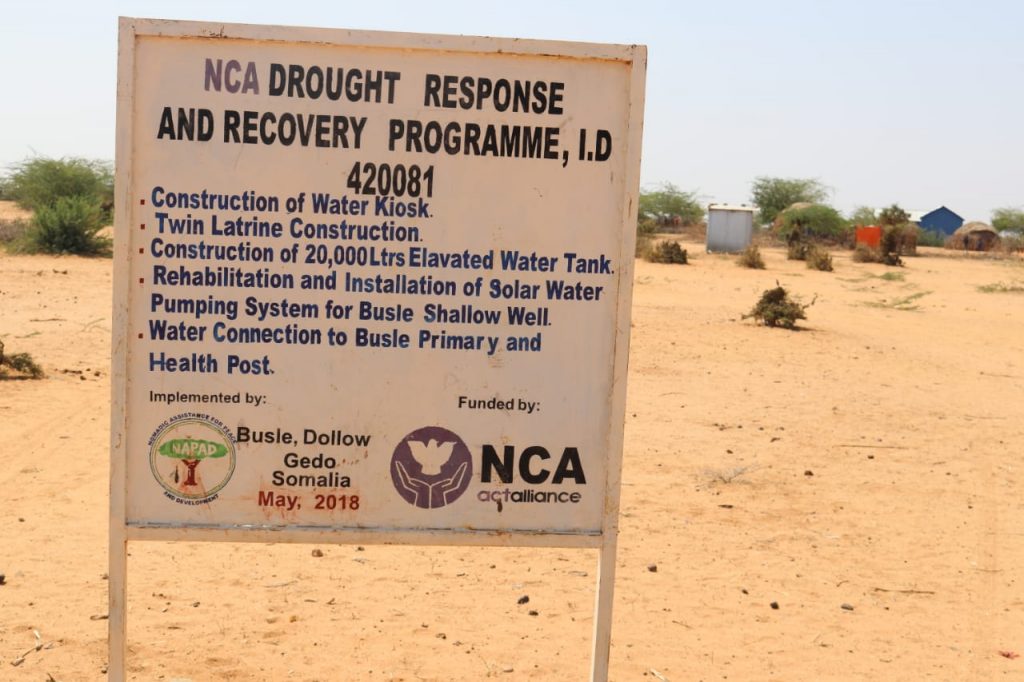
Mama Ebla and the community were offered respite after NAPAD and NCA implemented the project. Since May 2018, the project has been providing clean water to 500 households in Busle village and three neighbouring villages; Maskino, Kulunle and Ramagororo villages.
“We couldn’t believe that we were no longer trekking to the river to fetch water. Alhamdulillah! we are less than five minutes away from the water point and I am grateful that I can access it anytime,” says Mama Ebla with a smile.
